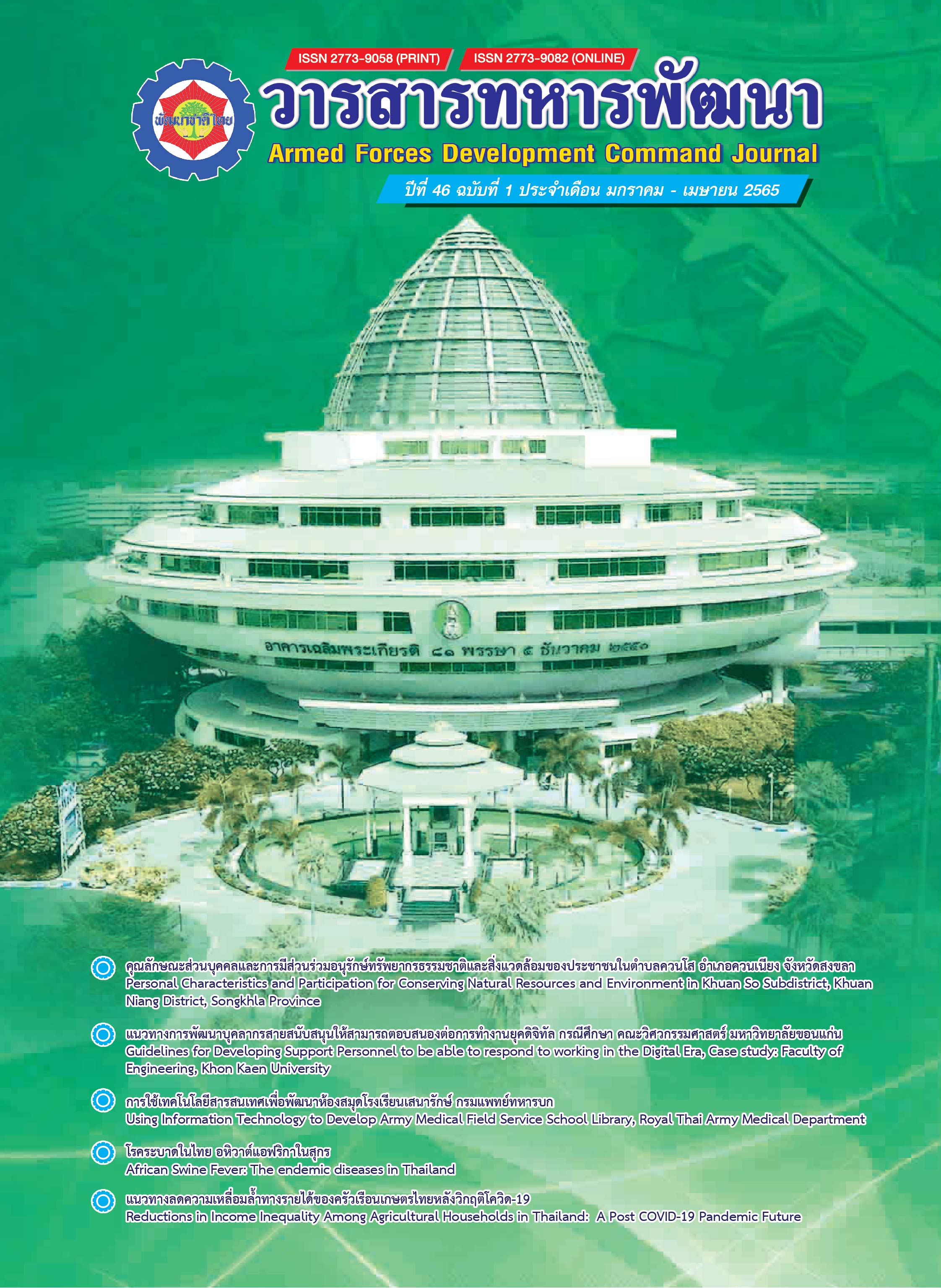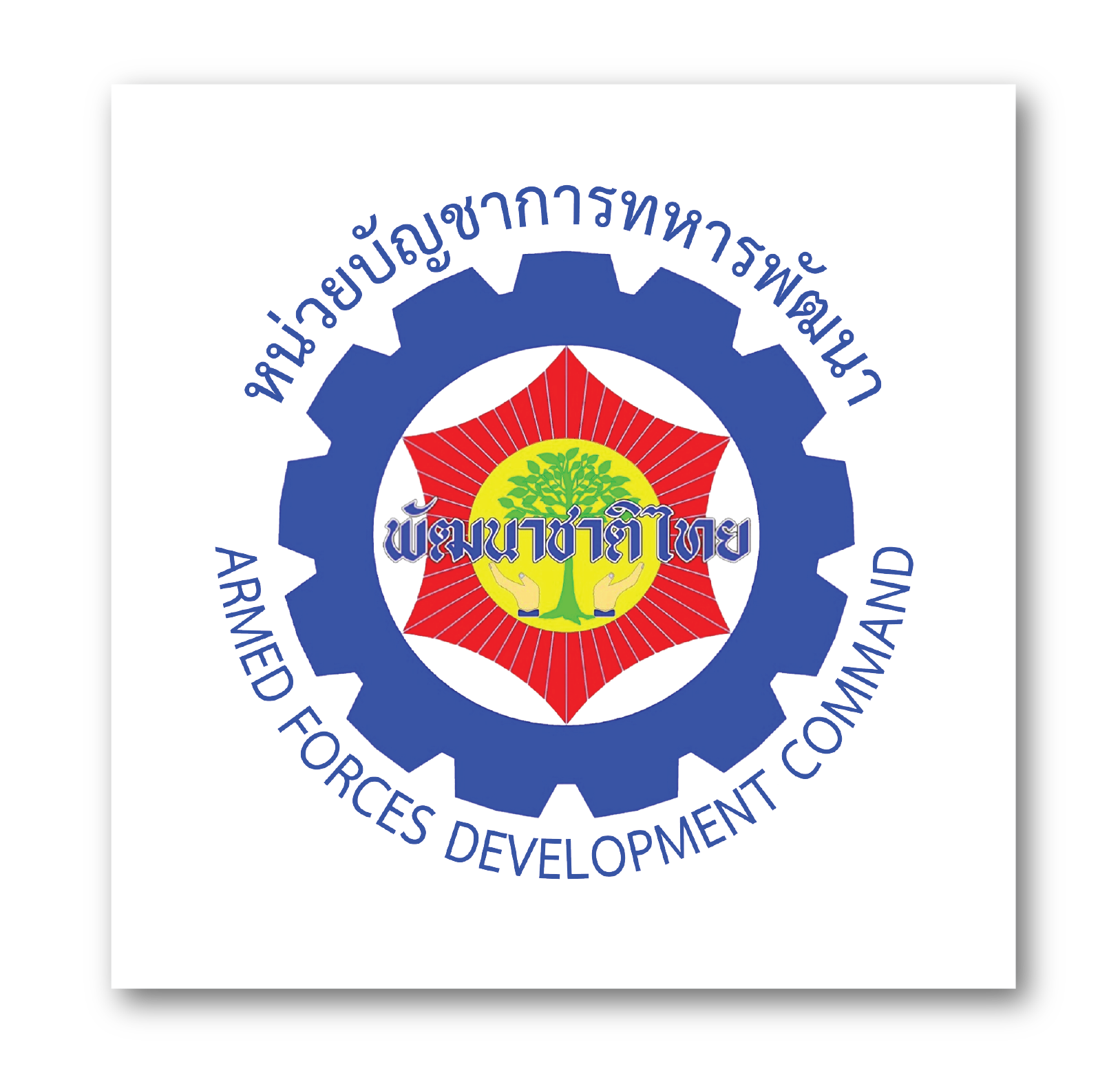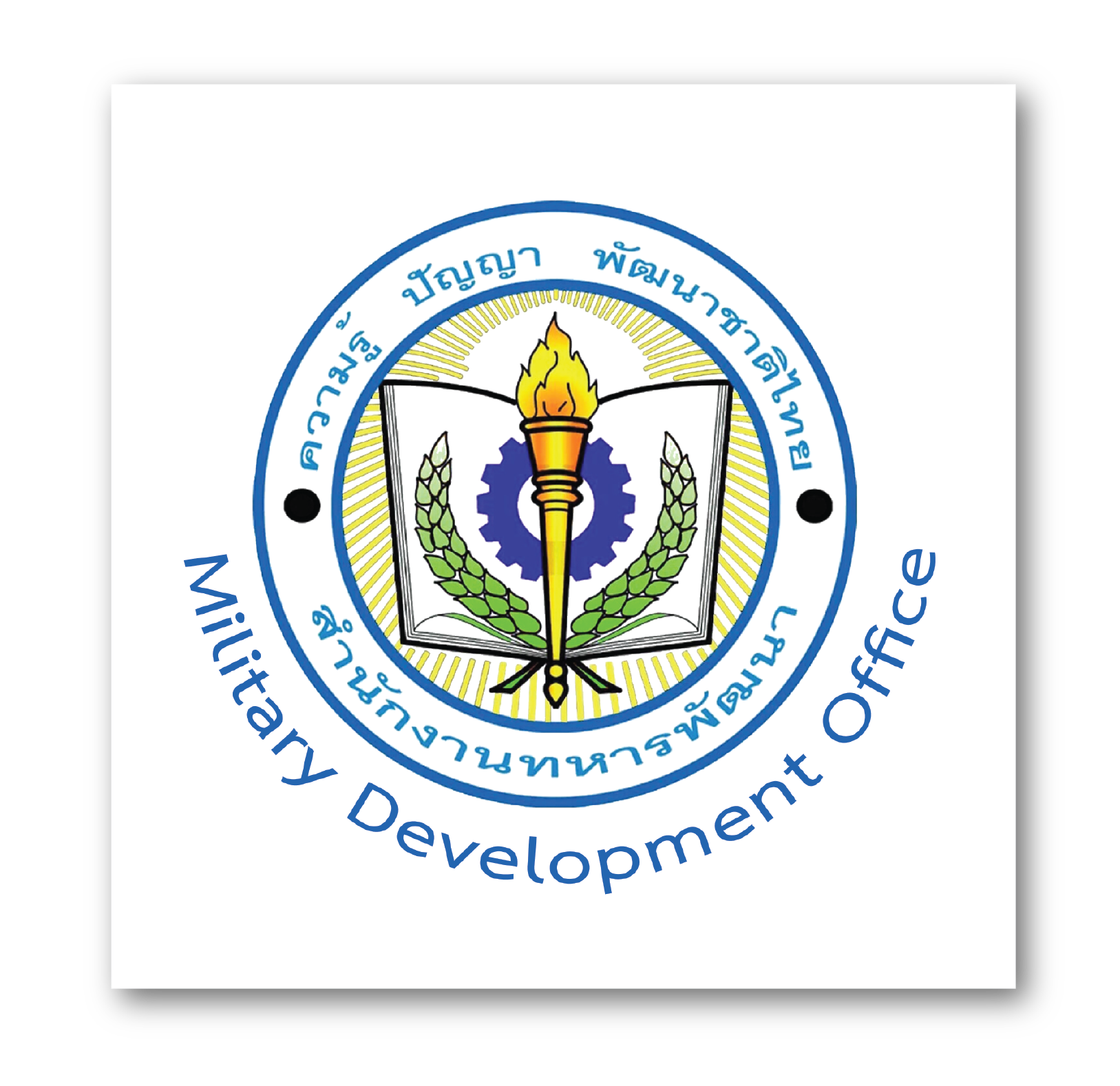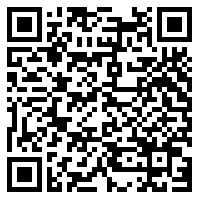แนวทางการพัฒนาบุคลากรสายสนับสนุนให้สามารถตอบสนองต่อการทำงานยุคดิจิทัล กรณีศึกษา คณะวิศวกรรมศาสตร์ มหาวิทยาลัยขอนแก่น
คำสำคัญ:
แนวทางการพัฒนา บุคลากรสายสนับสนุน ยุคดิจิทัลบทคัดย่อ
การวิจัยนี้มีวัตถุประสงค์เพื่อศึกษาสภาพปัญหาและอุปสรรคในการทำงานยุคดิจิทัลและศึกษาแนวทางการพัฒนาบุคลากรให้สามารถตอบสนองต่อการทำงานยุคดิจิทัลของบุคลากรสายสนับสนุน คณะวิศวกรรมศาสตร์ มหาวิทยาลัยขอนแก่น เป็นการวิจัยเชิงคุณภาพ ผู้ให้ข้อมูลจำนวน 5 คน รวบรวมข้อมูลด้วยการสัมภาษณ์และวิเคราะห์ข้อมูลด้วยการวิเคราะห์เนื้อหา ผลการวิจัย พบว่า
- สภาพปัญหาและอุปสรรคในการทำงานภายใต้ยุคดิจิทัลในปัจจุบัน คือ 1) บุคลากรขาดทักษะการใช้เทคโนโลยีดิจิทัล 2) ความแตกต่างของช่วงวัย 3) กฎระเบียบของมหาวิทยาลัยที่เปลี่ยนแปลงบ่อยครั้ง 4) ความเปลี่ยนแปลงที่รวดเร็วของเทคโนโลยี
- แนวทางการพัฒนาบุคลากรสายสนับสนุนให้สามารถตอบสนองต่อการทำงานยุคดิจิทัล จำแนกเป็น 5 ด้าน ได้แก่ 2.1 ด้านความรู้ พบว่า 1) ควรมีการจัดการความรู้ 2) ควรมีการวิเคราะห์งาน และเปิดโอกาสบุคลากรมีส่วนร่วมในการเลือกหัวข้อการพัฒนา 3) ควรพัฒนาทักษะพื้นฐานที่จำเป็นก่อนพัฒนาตามภาระงาน 2.2 ด้านทักษะ พบว่า 1) ควรกำหนดทักษะพื้นฐานที่ทุกคนควรมีในการทำงาน 2) ควรมีการวัดระดับความสามารถทักษะการใช้เทคโนโลยีดิจิทัล 3) มีการประเมินก่อน ระหว่างและหลังการอบรมทุกครั้ง 2.3 ด้านทัศนคติ พบว่า ควรมีการสื่อสารกันภายในองค์กรและควรเปิดโอกาสให้บุคลากรมีส่วนร่วมในการกำหนดประเด็นในการพัฒนา 2.4 ด้านแรงจูงใจ พบว่า ควรมีระบบการให้รางวัลและผลตอบแทนจากผลการปฏิบัติงานที่มีความโดดเด่น 2.5 ด้านการพัฒนา พบว่า ควรมีการพัฒนาระบบดิจิทัลระดับคณะและพัฒนาตัวชี้วัดผลการปฏิบัติงานที่สอดคล้องกับลักษณะงาน
- ผู้บริหารมีการกำหนดแนวทาง/วิธีการในการพัฒนาบุคลากรสายสนับสนุนสามารถทำงานในยุคดิจิทัล ด้วยการวิเคราะห์และจำแนกประเภทของบุคลากรตามความสามารถ เน้นการเรียนรู้แบบทดลองปฏิบัติจริง และการประเมินผลอย่างเป็นธรรม สนับสนุนและส่งเสริมให้บุคลากรสายสนับสนุนสามารถทำงานในยุคดิจิทัลด้วยการจัดสรรงบประมาณอย่างเพียงพอต่อการจัดโครงการฝึกอบรม การจ้างวิทยากรที่มีความรู้ สนับสนุนอุปกรณ์ที่จำเป็นต้องใช้ในการทำงานยุคดิจิทัล และมีระบบยกย่องเชิดชูเกียรติและให้ผลรางวัลตอบแทน สำหรับผู้ที่มีผลงานดี
เอกสารอ้างอิง
รุ่งนภา จันทร์อ่อน. (2562). การพัฒนาทักษะด้านดิจิทัลของบุคลากรกรมประชาสัมพันธ์ สู่การเปลี่ยนเป็นหน่วยงานดิจิทัล. กรุงเทพฯ : โครงการรัฐประศาสนศาสตรมหาบัณฑิต มหาวิทยาลัยรามคำแหง.
รุ่งรัตน์ พลชัย. (2563). ภาวะผู้นำกับการบริหารในยุคดิจิทัล. วารสารมนุษยศาสตร์และสังคมศาสตร์ มมร. วิทยาเขตอีสาน, 1(3): 53-62.
รุ่งรัตนา บุญ-หลง. (2561). แนวทางการพัฒนาบุคลากรสำนักงานปลัดสำนักนายกรัฐมนตรีภายใต้บริบทประเทศไทย 4.0. กรุงเทพฯ : หลักสูตรการป้องกันราชอาณาจักร.
รจนา นันทิชุติมา. (2563). การจัดการทรัพยากรมนุษย์ในยุคราชการ 4.0 กรณีศึกษาสำนักงานคณะกรรมการข้าราชการกรุงเทพมหานคร. กรุงเทพฯ : โครงการรัฐประศาสนศาสตรมหาบัณฑิต มหาวิทยาลัยรามคำแหง.
สมบัติ กุสุมาวลี. (2559). HR 4.0 Trends and Move ทิศทางการบริหารจัดการทรัพยากรมนุษย์ @Thailand 4.0. HR Society Magazine, 14 (164): 36-39.
สำนักงานคณะกรรมการข้าราชการพลเรือน (ก.พ.). (2562). ทักษะด้านดิจิทัลของข้าราชการและบุคลากรภาครัฐเพื่อการปรับเปลี่ยนภาครัฐเป็นรัฐบาลดิจิทัล. กรุงเทพฯ : สำนักงานคณะกรรมการข้าราชการพลเรือน.
โสมวลี ชยามฤต. (2564). การพัฒนาทรัพยากรมนุษย์เพื่อรองรับยุคดิจิทัลขององค์การภาครัฐและเอกชน. วารสารสหวิทยาการมนุษยศาสตร์และสังคมศาสตร์, 4 (1): 38-50.
อุไรวรรณ ชัยชนะวิโรจน์ และชญาภา วันทุม. (2560). การทดสอบความตรงตามเนื้อหาของเครื่องมือวิจัย. วารสารการพยาบาลและสุขภาพ, 11 (2): 105-111.
ดาวน์โหลด
เผยแพร่แล้ว
ฉบับ
ประเภทบทความ
สัญญาอนุญาต
ลิขสิทธิ์ (c) 2022 หน่วยบัญชาการทหารพัฒนา กองบัญชาการกองทัพไทย

อนุญาตภายใต้เงื่อนไข Creative Commons Attribution-NonCommercial-NoDerivatives 4.0 International License.
บทความที่ได้รับการตีพิมพ์เป็นลิขสิทธิ์ของหน่วยบัญชาการทหารพัฒนา กองบัญชาการกองทัพไทย
ข้อความที่ปรากฏในบทความแต่ละเรื่องในวารสารวิชาการเล่มนี้เป็นความคิดเห็นส่วนตัวของผู้เขียนแต่ละท่านไม่เกี่ยวข้องกับหน่วยบัญชาการทหารพัฒนา กองบัญชาการกองทัพไทย และบุคลากรท่านอื่นๆในกองบัญชาการฯ แต่อย่างใด ความรับผิดชอบองค์ประกอบทั้งหมดของบทความแต่ละเรื่องเป็นของผู้เขียนแต่ละท่าน หากมีความผิดพลาดใดๆ ผู้เขียนแต่ละท่านจะรับผิดชอบบทความของตนเองแต่ผู้เดียว






